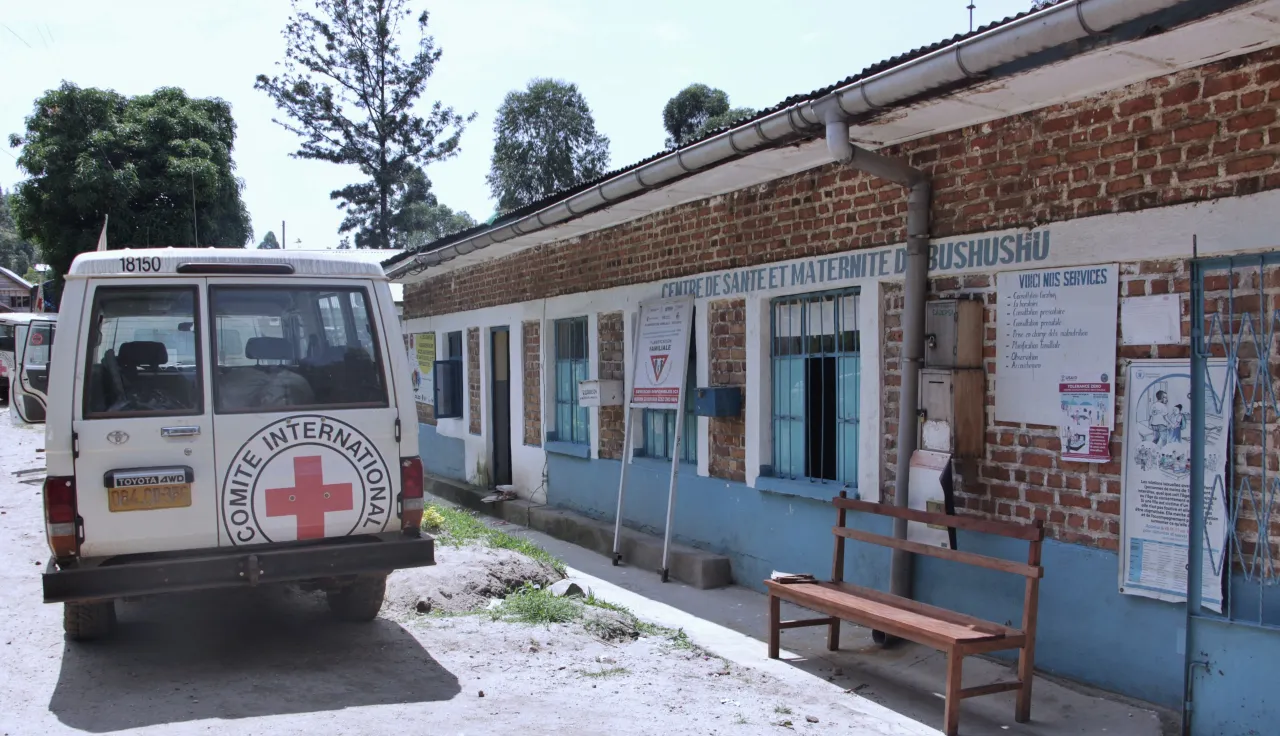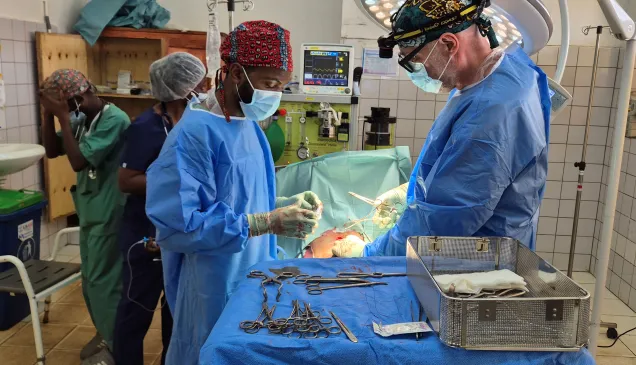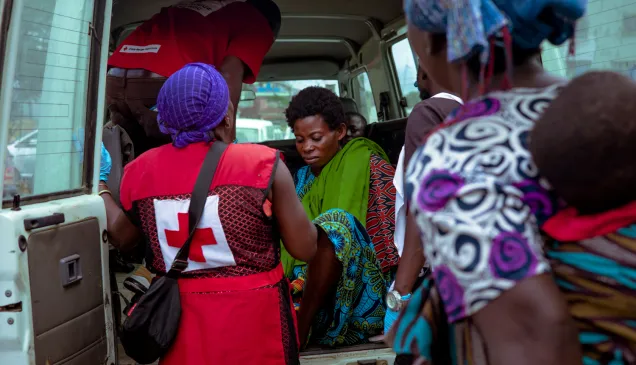The study also showed that three out of every five facilities surveyed had been looted since the conflicts escalated.
“Our health centre was looted. They took the equipment and the medicine. Without any medicine, we struggle to treat even everyday illnesses like malaria, respiratory infections and diarrhoea,” said Safari , a nurse at a health centre in Kalehe, in South Kivu.
Under IHL, the parties to armed conflict are required to facilitate access to health care and respect the role of hospitals and other medical facilities. These facilities must be protected in carrying out their exclusively humanitarian mission – not attacked, destroyed, looted, or unduly hindered.
The intensification in the fighting in North and South Kivu, and the changes in the parties’ territorial control, have seriously disrupted facilities’ supply chains for medicine and supplies. Given that it is currently impossible to land at either the Goma or the Bukavu airports, transporting medicine from Kinshasa to North and South Kivu has become complex and costly, requiring detours through other countries. Moreover, it is dangerous to try to reach the areas near the fighting and certain areas in the Grand Nord part of North Kivu, which makes supplying the facilities there difficult.
“Nearly three-quarters of the facilities included in the study had run out of some medicines because of the conflicts and also because they ran out of the stock that had been provided by humanitarian organizations before their drastic funding cuts,” said Dr Penlap. “Even pain medicines like paracetamol and ibuprofen are running out.”
The drastic reduction in humanitarian organizations’ funding has led many of them to decrease or halt their activities entirely, which has significantly reduced the availability of medicines. For example, the entity in charge of distributing post-rape kits (PeP kits) to treat survivors in North and South Kivu had to stop its work because of a lack of financing, even though sexual violence remains an important issue.
“The situation is serious: all the parties to the conflicts must take urgent measures to respect and protect those in need of medical care and the people caring for them and facilitate the rapid and unhindered passage of humanitarian aid, including medical services and supplies, regardless of front lines. Everyone involved also needs to provide transparent, predictable funding for medical work,” said Mr Moreillon.
Health-related assistance in North and South Kivu, January to May 2025
Care for wounded people
- More than 2,900 wounded people were treated in ICRC-supported hospitals in North and South Kivu.
- 5 surgical teams were sent to North and South Kivu.
- Nearly 7,000 surgical operations were carried out on wounded people by our teams.
- 3 hospitals were given regular support to help them treat wounded people (CBCA Ndosho Hospital in Goma, Beni Reference Hospital, and Bukavu Reference Hospital).
- 3 emergency surgery support projects were carried out – one at the North Kivu Provincial Hospital (3 months), the Bukavu University Clinic (1 month) and the Fizi Reference Hospital (since May).
- 15 medical facilities were given supplies for stabilizing wounded people.
- 41 hospitals and health centres received support to help them provide free access to health care to people who had been displaced or otherwise affected by the violence.
- Nearly 33,800 people received mental health and psychosocial support services at ICRC‑supported counselling centres and physical rehabilitation centres.
- 440 victims of sexual violence were referred to the ICRC, 56 of whom were able to be treated within 72 hours of the incident.
- 261 people (213 men and 48 women) were trained in first aid, including motorcyclists, community relays, health-care workers, DRC Red Cross volunteers, and weapon bearers.
- More than 370 people received physical rehabilitation services at ICRC-supported centres.
- More than 450 wheelchairs and other mobility aids were delivered.
Logistical support for health-care facilities
- 13 tents were set up, including eight at two medical facilities in Goma and four at the Bukavu Reference Hospital, to expand their capacity.
- 63,070 m3 of clean water was delivered to several medical facilities in Goma and Bukavu to help them continue providing essential services.
- 27,250 litres of fuel were given to several medical facilities to help keep them operating.
- 1 electrical generator (330 kVA) was given to the Bukavu Reference Hospital.




